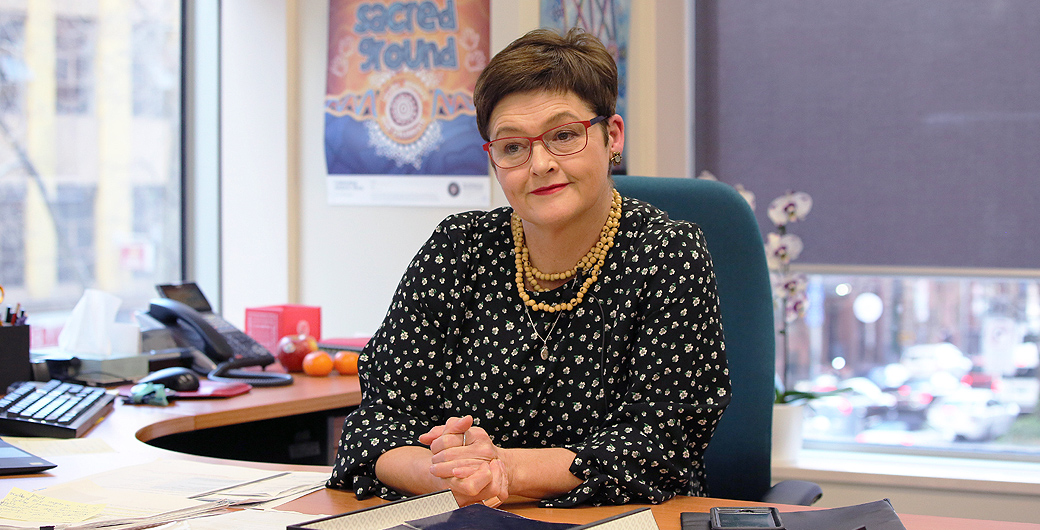ANZSOG’s Executive Fellows Program: where leadership and public policy intersect
25 April 2019
● News and media
One of Victoria’s senior public sector executives, Keryn Negri, looks back fondly at the time she stepped away from the demands of her job for a few weeks to join the 2012 Executive Fellows Program, a prestigious course for leaders run by the Australia and New Zealand School of Government.
“It wasn’t just a leadership course. It wasn’t just a public policy course,” she said. “It was a beautiful combination of the two.”
The former CEO of the Victorian Civil and Administrative Tribunal still uses lessons from her EFP study in her work and says the program altered her leadership style and her decision-making techniques from the moment she returned to her desk.
“We were all applying the learnings immediately to our real-world jobs,” she said. “I was much more self-reflective about my leadership style, I was much more open and sought feedback on what that was, and what other people’s experience was of my leadership style.”
She said the program gave her the confidence to push staff working on policy development to maintain a long view, instead of lurching for “silver bullet” solutions within the term of an election cycle.
The EFP, which is now open for applications for 2019, is designed for high-performing senior public sector executives, such as deputy secretaries and executives who report to deputy secretaries or are two levels below CEO. The program is also suitable for international equivalent levels and other experienced, high-performing senior leaders.
In 2019, it will take participants to Wellington, Canberra and Singapore, exposing them to a mix of strategies, frameworks, and global perspectives, led by world leading academics and industry experts.
Keryn, who has recently taken up a role as the Faculty Executive Director at the University of Melbourne’s Graduate School of Education, reflected that her EFP learning convinced her that public service leaders need to “get the data, understand the evidence that underpins the policy decision, think about the public value in the broadest possible sense, and understand the authorising environment in terms of your stakeholder base.”
What her time in the program really taught her was that it was important to argue a comprehensive case to government, avoiding the lure of the potential short term fix.
“There are always wicked public policy problems that are hard to find solutions to, particularly if those solutions require sustainable funding over a long period of time and a sustainable approach to policy,” she said.
“I think we have to maintain the art of the long view and we have to really keep pushing for sustainable solutions, and they’re often not short-term solutions.”
Another major challenge facing public sector leaders, she said, is being an effective policy-maker while working within the shift from industrial models of operation to the rising high-tech knowledge economy.
During the course itself, Keryn highlighted the interactions with her fellow participants – all high-level public sector leaders – as a real benefit of the program.
And with more than 1000 past participants among the EFP alumni, including some of the most senior executives across the public service at all levels of government, and the NFP sector, there are no shortage of fellow leaders to ask for advice or just recall the joy of EFP study.
“I probably got as much out of the lunchtime sessions and the morning tea sessions where we sat down and talked about what everybody was doing as much as you did out of the lectures,” she said.
“The networking that you do and the opportunity to hear other people’s challenges is a real value add of the course.”
